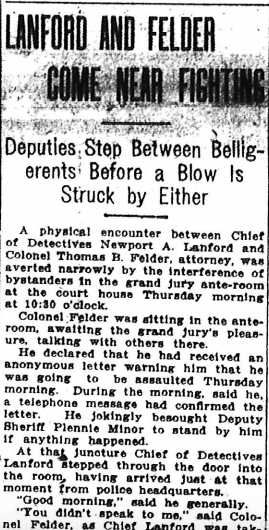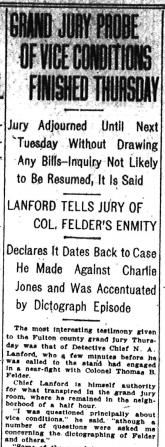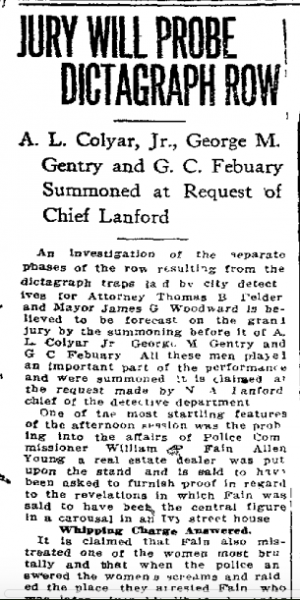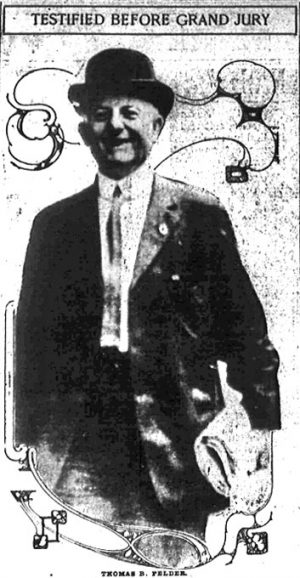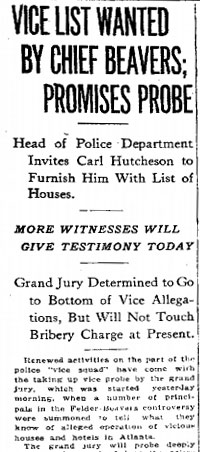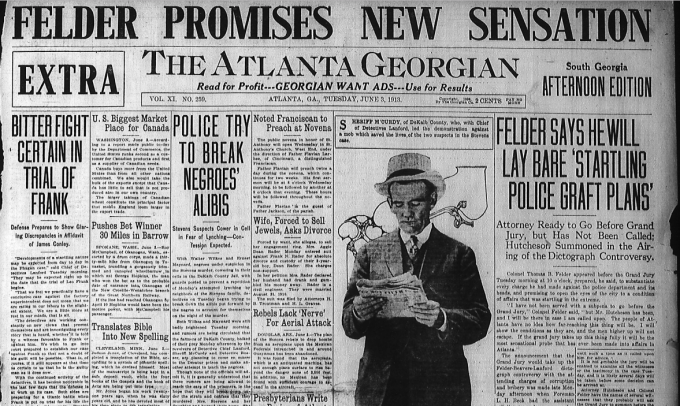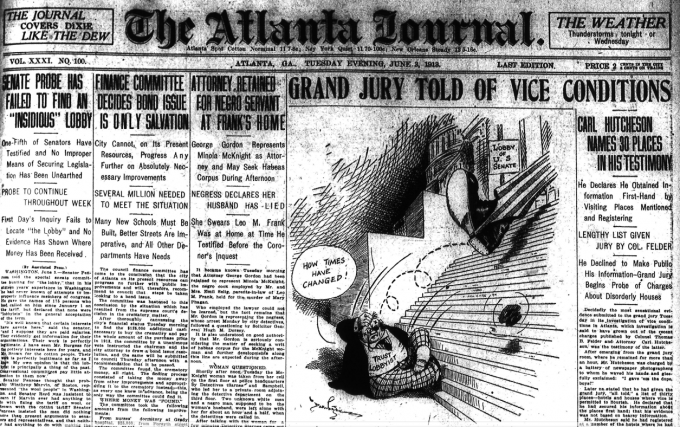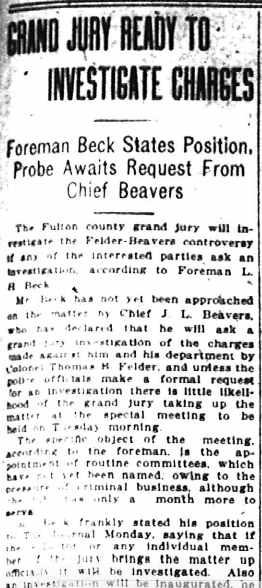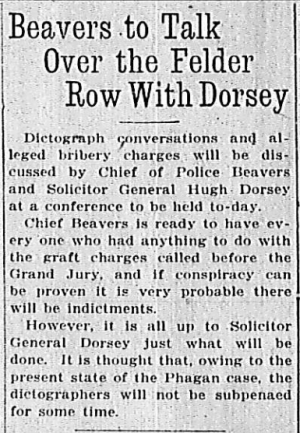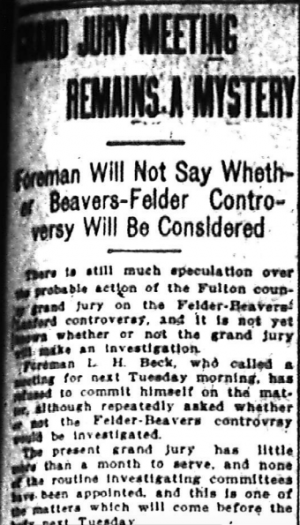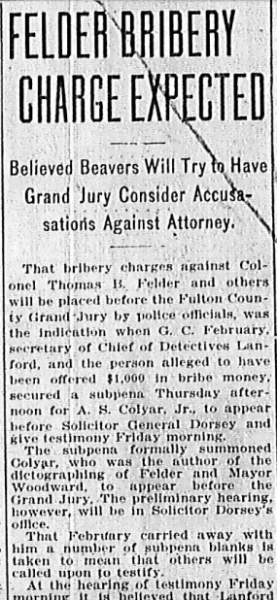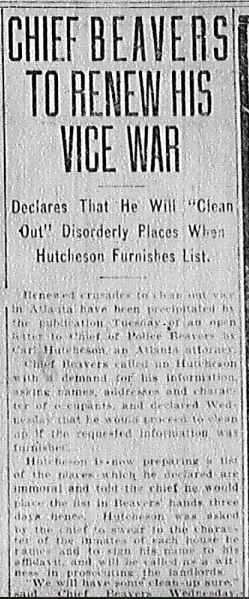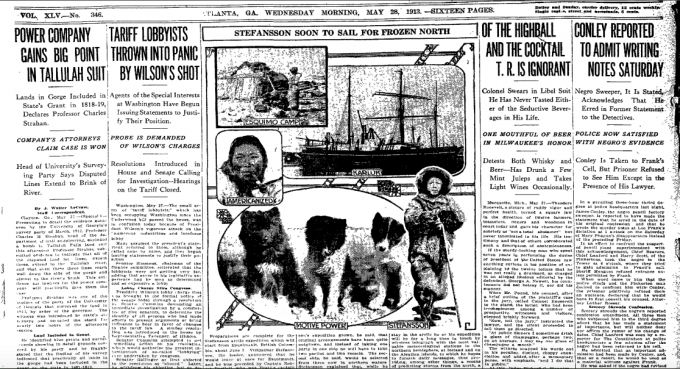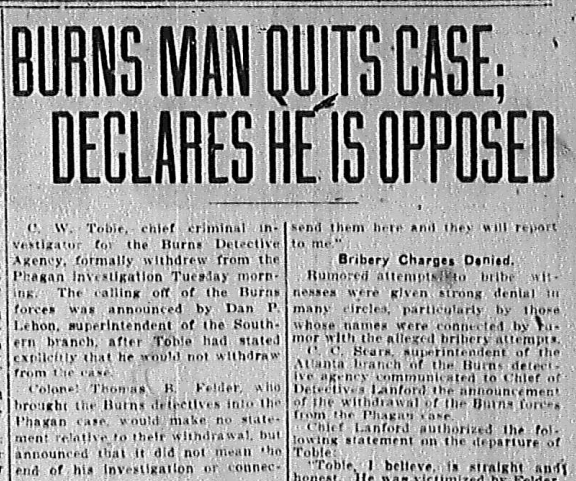
George Gentry, operator of the dictograph, alleged to have trapped Colonel T. B. Felder and Mayor Woodward. Gentry now is missing.
Another in our series of new transcriptions of contemporary articles on the Leo Frank case.
Atlanta Georgian
Thursday, June 5th, 1913
Probers Question Colyar and Febuary About Alleged Admissions by Negro.
Chief Lanford, in discussing the near-fight between himself and Attorney Felder in Solicitor Dorsey’s office Thursday morning, characterized his opponent as all bluff.
“Felder is a coward and void of all truth,” declared Chief Lanford. “If I had been left with him alone for one minute I would have showed the rascal up. I wouldn’t have cared if he had a dozen pistols. Felder hasn’t the nerve to pull the trigger anyway.
“I would have taken a thirty-day suspension just to have given Felder what he deserves. Felder knows that I meant to do it, too, and he did not rise out of his chair to face me until he saw that there were plenty of men about to prevent a conflict.”
It became known this afternoon that the Grand Jury Thursday had investigated a sensational story that A. S. Colyar, the dictograph man, had been trying to dispose of what purported to be a confession from James Conley, negro sweeper, that he had killed Mary Phagan in the National Pencil factory.
The Grand Jury was told that such a document had been displayed to various persons and that Colyar had offered it to W. C. Tobie, the Burns man who worked on the case some time.
Colyar was summoned before the jury. G. C. Febuary, secretary to Chief Lanford, was also summoned because the Grand Jury had heard that he took down the alleged confession. Both Colyar and Febuary denied the existence of such an affidavit. Febuary, questioned very closely, said that every affidavit made by Conley and taken down by him had been made public and that in none of them did Conley confess to the killing.
Jury Probes Vice Reports.
In an atmosphere pregnant with excitement and at times so threatening that Solicitor General Dorsey was forced to appoint a deputy sheriff to preserve peace in his office, the Fulton County Grand Jury continued, its investigation of vice conditions in Atlanta Thursday morning.
Gathered in the ante-room to where the hearing is being conducted were the leaders of the opposing factions, Colonel Thomas B. Felder, for the one side, and Chief of Detectives Newport Lanford, Police Chief Beavers, A. S. Colyar and G. C. Febuary, for the other. Sympathizers with each were present, crowding the offices and adding to the general uneasiness that prevailed.
The first sensation of the morning occurred with the rearrest of Colyar on request of the Chief of Police of Knoxville, Tenn. Colyar was taken into custody by Deputy Sheriff Plen[n]ie Miner when he appeared, at the Thrower Building to testify before the Grand Jury. Continue Reading →

